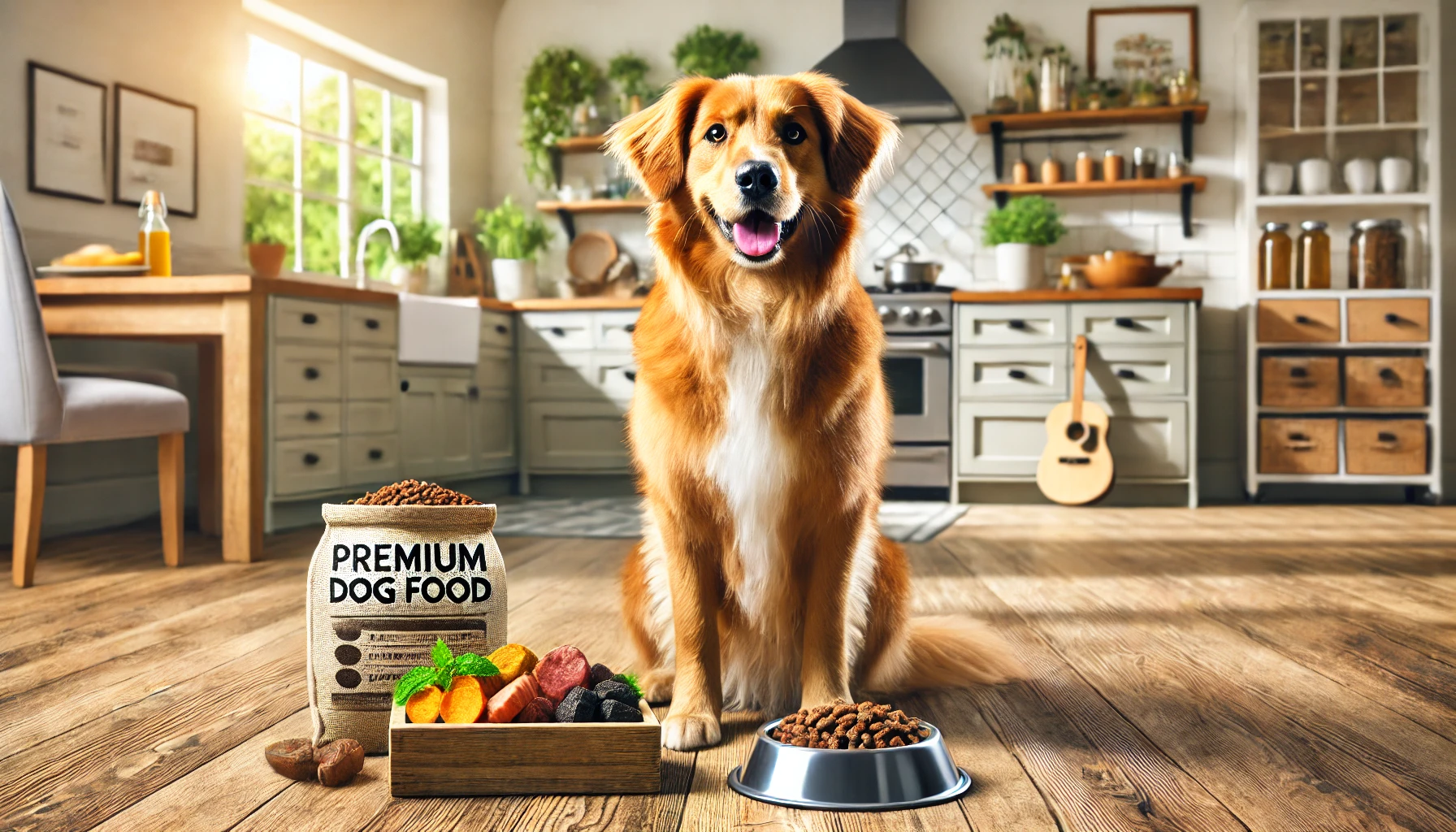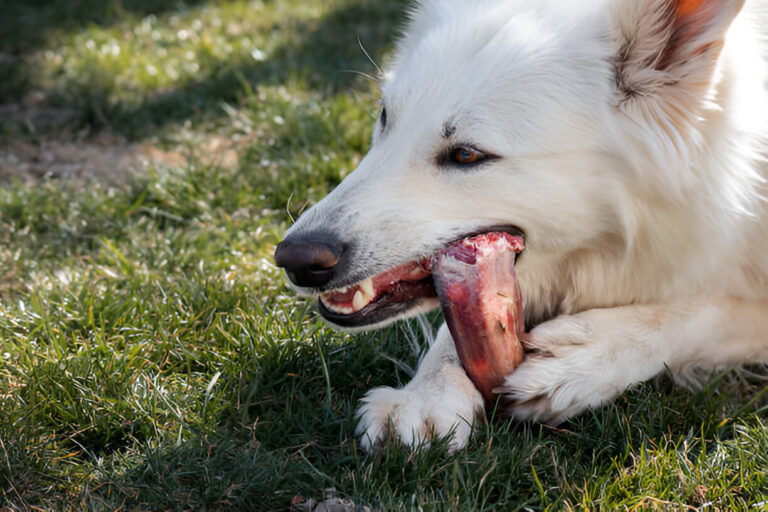Importance of Sensitive Stomach Dog Food
Dogs with sensitive stomachs often suffer from digestive issues, making it essential to choose the right food to maintain their health and comfort. Sensitive stomach dog food is specially formulated to be gentle on their digestive systems, preventing common issues like vomiting, diarrhea, and gas. Selecting the right dog food for sensitive stomachs ensures that your pet receives all the necessary nutrients without causing any discomfort.
Key Takeaways
| Point | Description |
|---|---|
| Importance of Sensitive Stomach Dog Food | Reasons why special food is necessary for dogs with sensitive stomachs. |
| Ingredients to Look For | Key ingredients that aid in digestion and reduce stomach issues. |
| Ingredients to Avoid | Common ingredients that can trigger sensitivity in dogs. |
| Types of Sensitive Stomach Dog Food | Different types of dog food formulations suitable for sensitive stomachs. |
| Benefits of Sensitive Stomach Dog Food | Advantages of feeding dogs with special dietary needs. |
| Snackabone Products for Sensitive Stomachs | Overview of Snackabone products beneficial for dogs with sensitive stomachs. |
| How to Transition to Sensitive Stomach Dog Food | Steps to switch your dog to a sensitive stomach diet safely. |
| Tips for Maintaining Digestive Health | Additional tips to ensure your dog’s digestive health. |
Table of Contents
Ingredients to Look For

Easily Digestible Proteins
Look for proteins that are easy on your dog’s stomach, such as chicken, turkey, and lamb. These proteins are less likely to cause adverse reactions. Proteins play a crucial role in building and repairing tissues, making them an essential component of a dog’s diet, especially for those with sensitive stomachs.
Carbohydrates
Carbohydrates like rice, sweet potatoes, and oats are gentle on the stomach and provide essential energy without causing irritation. These ingredients are not only easy to digest but also offer a steady source of energy throughout the day.
Probiotics and Prebiotics
Probiotics and prebiotics help promote a healthy gut flora, which is crucial for digestion and overall health. These components support a balanced microbiome, aiding in the digestion process and boosting the immune system.
Ingredients to Avoid
Artificial Additives
Avoid dog food with artificial colors, flavors, and preservatives, as these can irritate the digestive system. These additives can trigger allergic reactions and other health issues, making them unsuitable for dogs with sensitive stomachs.
Grains and Gluten
Grains and gluten can be common allergens for dogs, so opting for grain-free formulas can help reduce stomach sensitivity. Grain-free dog food eliminates potential allergens like wheat and corn, reducing the risk of digestive upset. For more information on grain-free diets, visit American Kennel Club.
Dairy and Soy
Dairy and soy are common irritants that can cause digestive problems in dogs with sensitive stomachs. These ingredients can lead to gastrointestinal distress, such as gas, bloating, and diarrhea.
Types of Sensitive Stomach Dog Food
Grain-Free Formulas
Grain-free dog food eliminates potential allergens like wheat and corn, reducing the risk of digestive upset. For more information on grain-free diets, visit American Kennel Club.

Limited Ingredient Diets
Limited ingredient diets simplify the food’s composition, making it easier to identify and avoid specific allergens. Check out more on limited ingredient diets at PetMD.
Hypoallergenic Options
Hypoallergenic dog foods are designed to minimize allergic reactions and are typically made with novel proteins and carbohydrates. Learn more about hypoallergenic dog food from PetMD.
Benefits of Sensitive Stomach Dog Food
Sensitive stomach dog food can improve digestion, reduce gastrointestinal issues, and enhance your dog’s overall health and energy levels. By providing easily digestible ingredients and avoiding common allergens, these foods ensure your dog receives the necessary nutrients without discomfort.
Causes of Sensitive Stomach Issues
Sensitive stomach issues in dogs can be caused by various factors, including dietary changes, food allergies, stress, and underlying health conditions. Identifying and addressing these causes is crucial for maintaining your dog’s digestive health. For more insights, visit ASPCA.
Symptoms of a Sensitive Stomach
Recognizing the symptoms of a sensitive stomach in dogs is vital for timely intervention. Common symptoms include vomiting, diarrhea, flatulence, abdominal discomfort, loss of appetite, and lethargy. If your dog exhibits any of these signs, consider switching to a sensitive stomach dog food. Learn more about the symptoms at VCA Hospitals.
Common Breeds with Sensitive Stomachs
Certain dog breeds are more prone to sensitive stomachs, including:
- Labrador Retrievers
- German Shepherds
- Boxers
- Miniature Schnauzers
- Cocker Spaniels These breeds may require special dietary considerations to maintain their digestive health. For more breed-specific information, visit DogTime.
Best Dog Food for Sensitive Stomachs
Choosing the best dog food for sensitive stomachs involves looking for brands that use high-quality, easily digestible ingredients and avoid common allergens. Brands like Hill’s Science Diet, Blue Buffalo, and Nutro offer specialized formulas designed for dogs with sensitive stomachs. For detailed reviews, check out The Dog Food Advisor.
Benefits of Raw Food for Sensitive Stomachs
Raw food can be beneficial for dogs with sensitive stomachs due to its natural and unprocessed ingredients. It often includes high-quality proteins and vegetables that are easier to digest, improving overall digestive health. Transitioning to raw food should be done gradually and with guidance from a veterinarian.
Snackabone Products for Sensitive Stomachs
Snackabone offers a range of products that are beneficial for dogs with sensitive stomachs:
Snackabone Premium Ham Bone
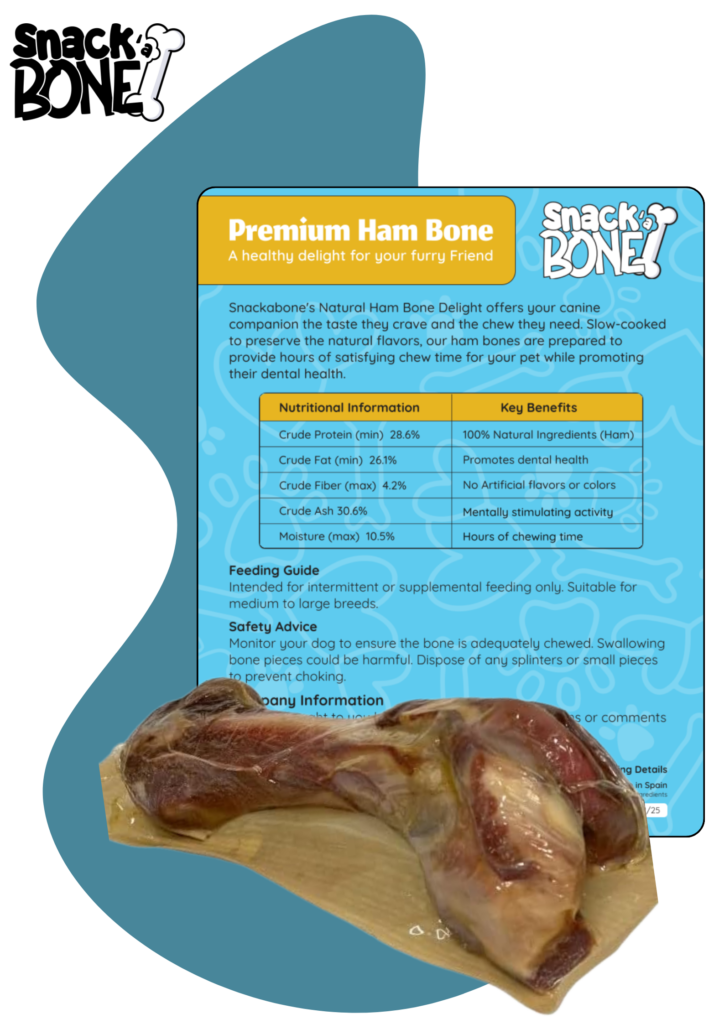

- Features: High-quality ham bone, natural ingredients
- Benefits: Easy to digest, supports dental health
Snackabone Ostrich Rex Bone
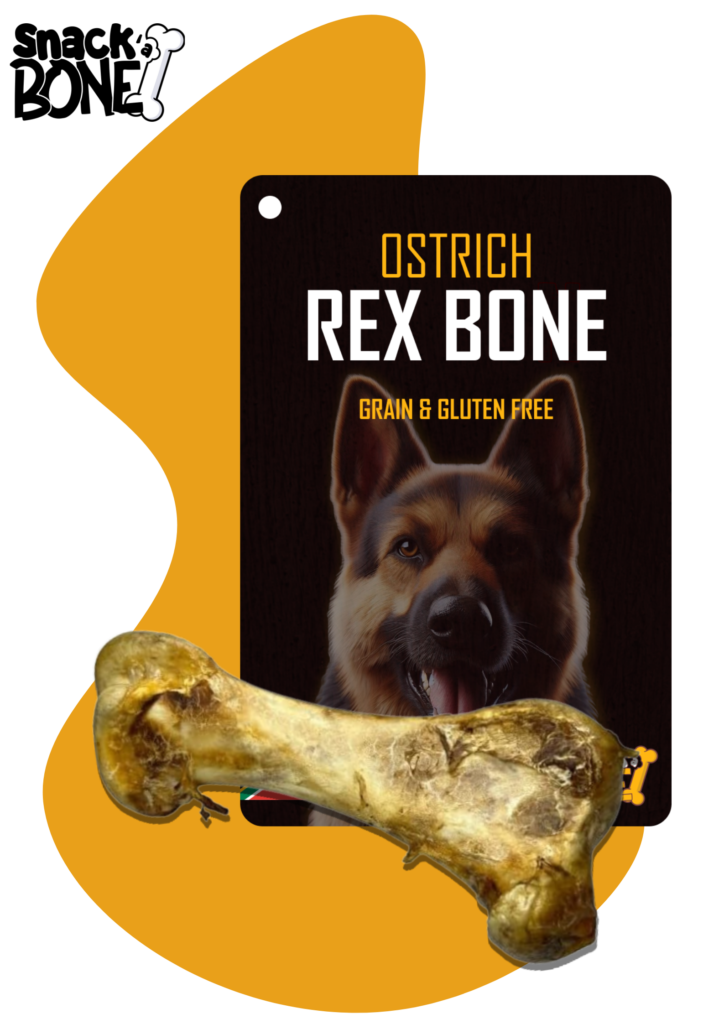

- Features: Premium ostrich bone, rich in nutrients
- Benefits: Gentle on the stomach, promotes healthy chewing
Snackabone Ostrich Shin Bone
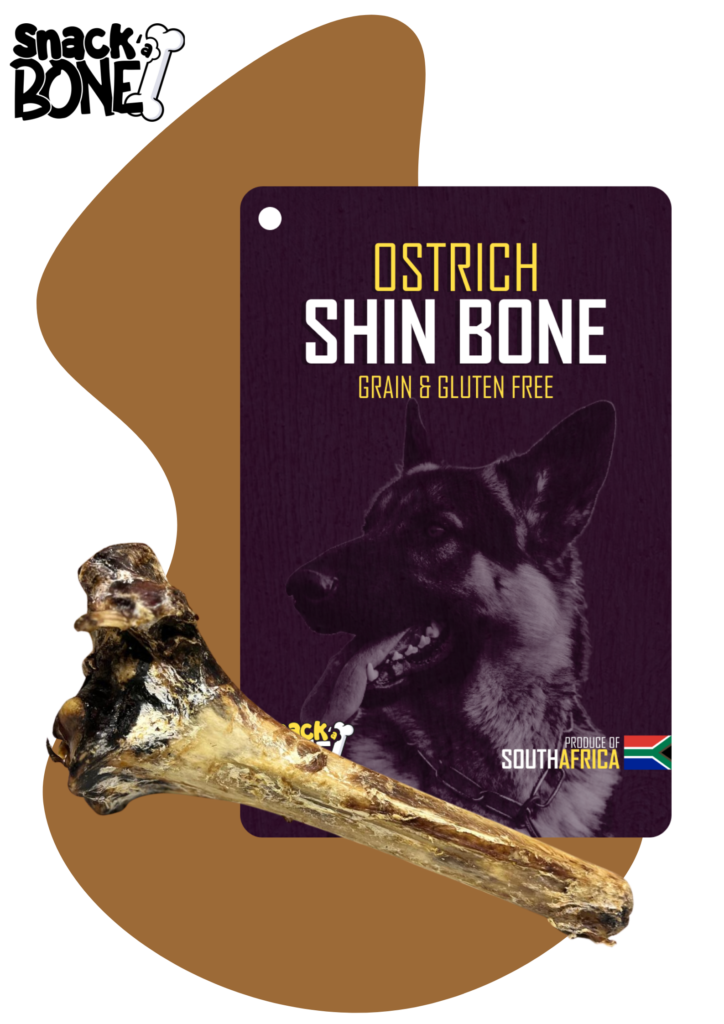

- Features: Nutrient-dense shin bone, natural flavor
- Benefits: Easily digestible, supports joint health
Snackabone Ostrich Ancestor Bone
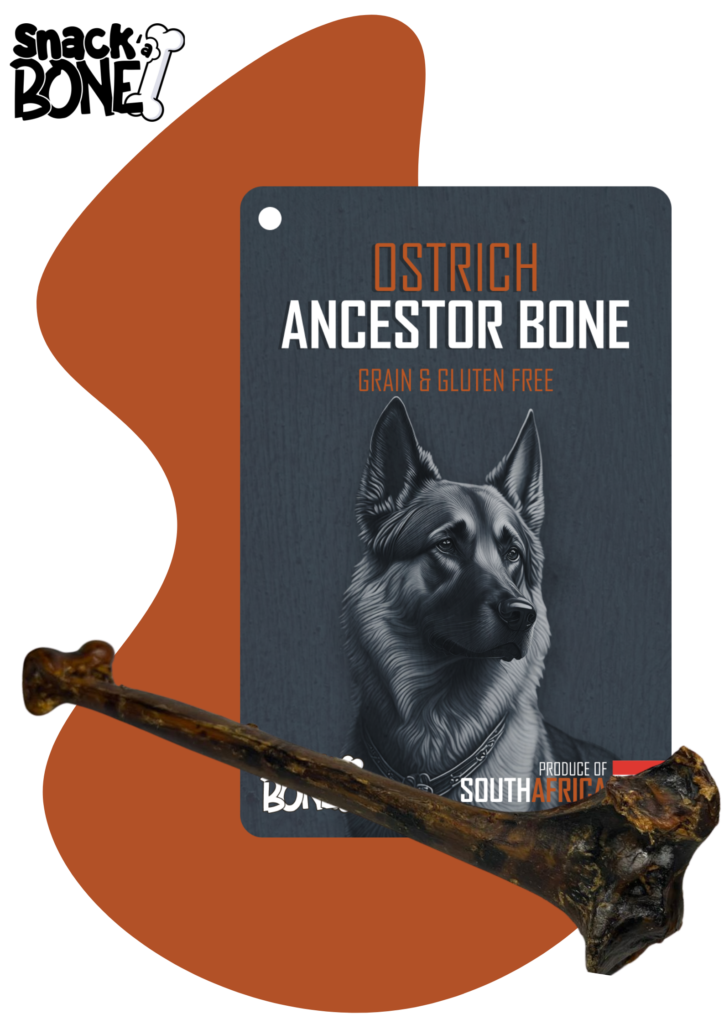

- Features: High-protein ostrich bone, natural
- Benefits: Supports digestive health, reduces allergens
Snackabone Ostrich Tarsal Bone
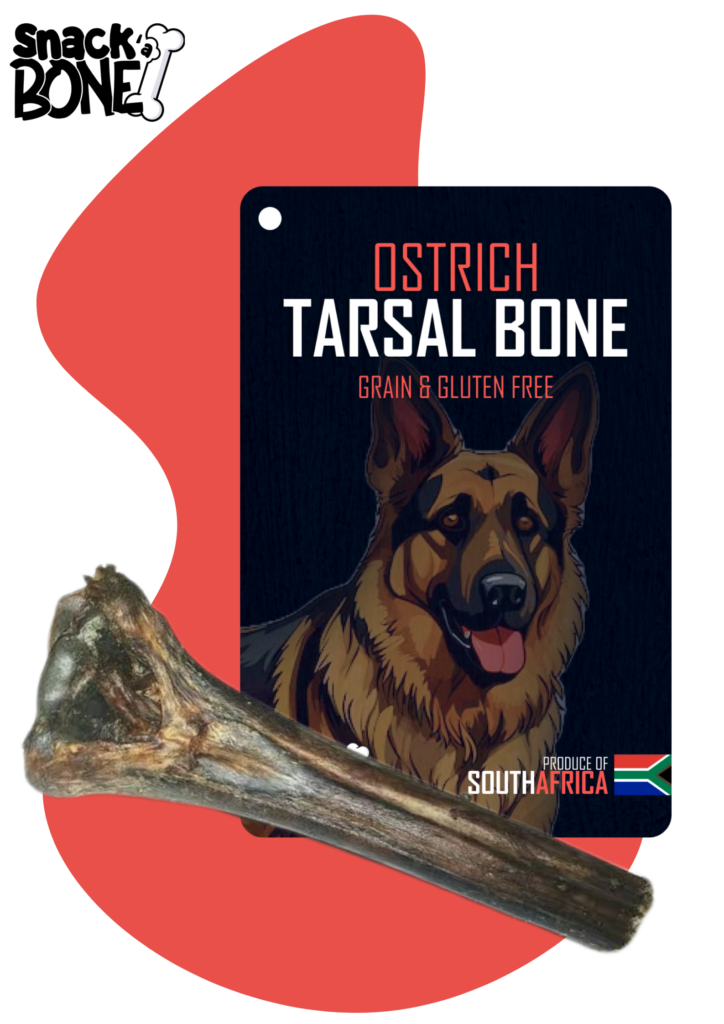

- Features: Quality tarsal bone, hypoallergenic
- Benefits: Promotes gut health, suitable for sensitive stomachs
How to Transition to Sensitive Stomach Dog Food
Transitioning to sensitive stomach dog food should be done gradually to avoid digestive upset. Start by mixing the new food with the old food, gradually increasing the amount of new food over a week. Monitor your dog’s response and consult with a veterinarian if needed. For more tips, visit PetMD.

Tips for Maintaining Digestive Health
Maintaining your dog’s digestive health involves regular feeding schedules, providing clean, fresh water, and avoiding table scraps and sudden diet changes. Additionally, ensuring your dog gets regular exercise and monitoring their health can prevent digestive issues.
FAQs
What causes issues with sensitive stomachs in dogs?
Sensitive stomach issues in dogs can be caused by food allergies, stress, dietary changes, or underlying health conditions. More information is available at ASPCA.
What are the symptoms of a sensitive stomach in dogs?
Symptoms include vomiting, diarrhea, flatulence, abdominal discomfort, loss of appetite, and lethargy. Learn more about the symptoms at VCA Hospitals.
Are there any dog breeds common to sensitive stomachs?
Breeds like Labrador Retrievers, German Shepherds, Boxers, Miniature Schnauzers, and Cocker Spaniels are more prone to sensitive stomachs. For more breed-specific information, visit DogTime.
What is the best dog food for sensitive stomachs?
Look for high-quality brands that use easily digestible ingredients and avoid common allergens. Brands like Hill’s Science Diet, Blue Buffalo, and Nutro are recommended. For detailed reviews, check out The Dog Food Advisor.
Why is raw food good for dogs with sensitive stomachs?
Raw food is beneficial due to its natural, unprocessed ingredients, which are easier to digest and improve overall digestive health. Learn more about raw food diets at Dogs Naturally Magazine.
Conclusion
Selecting the right dog food for sensitive stomachs is crucial for your dog’s health and well-being. By choosing high-quality, easily digestible ingredients and avoiding common allergens, you can ensure your dog stays healthy and happy. Always consult with a veterinarian before making any significant changes to your dog’s diet, and monitor their health closely to ensure they are benefiting from their new food.

